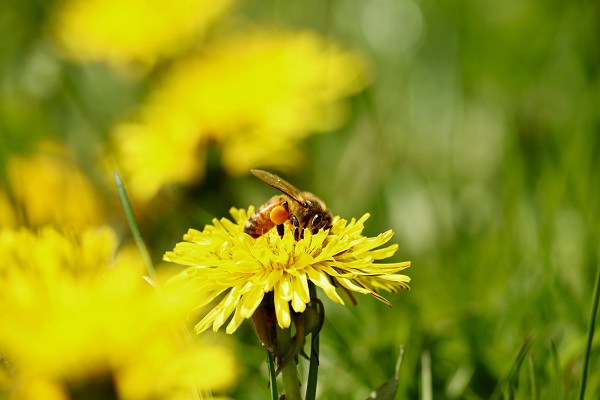
Honeybees, with their distinctive buzzing and diligent work ethic, are more than just producers of sweet golden honey. They play a vital role in nature as one of the most important pollinators on the planet. In this article, we explore the significance of honeybees in ecosystems, their intricate role in pollination, and the remarkable benefits they bring to the natural world.
The Role of Honeybees in Nature
Honeybees, scientifically known as Apis mellifera, are hardworking insects that contribute to the balance and fertility of ecosystems through pollination. As they visit flowers in search of nectar and pollen, they inadvertently transfer pollen from the male reproductive organs (anthers) to the female reproductive organs (stigmas) of flowers, aiding in the fertilization process. This cross-pollination is crucial for the reproduction of many plant species.
Pollination and Biodiversity
Honeybees are responsible for pollinating a wide variety of plants, including fruits, vegetables, nuts, and flowering plants. Their pollination efforts not only contribute to the growth and propagation of crops but also help maintain biodiversity in natural habitats. Many plant species rely on honeybees and other pollinators for their reproductive success, ensuring the survival of diverse ecosystems.
Economic Importance
The economic significance of honeybees cannot be overstated. They contribute to global food security by pollinating crops that form a substantial portion of human diets. According to estimates by the Food and Agriculture Organization (FAO), honeybees are responsible for pollinating around 75% of the world’s leading food crops. This includes fruits like apples, oranges, and berries, as well as vegetables like cucumbers, squash, and tomatoes.
Beyond pollination, honeybees are valued for their production of honey, beeswax, propolis, and royal jelly, which have various commercial and medicinal uses. The honeybee industry provides employment opportunities and generates revenue worldwide.
Challenges Facing Honeybees
Honeybees face several challenges that threaten their populations. Habitat loss, pesticide use, pests and diseases, and the spread of invasive species all contribute to the decline of honeybee colonies. This decline has serious implications for ecosystems, agricultural productivity, and food security.
Conservation Efforts
To protect honeybees and promote their well-being, various conservation efforts are underway. These include creating and preserving bee-friendly habitats, reducing the use of harmful pesticides, supporting sustainable beekeeping practices, and raising awareness about the importance of honeybees in the environment. Read this article and learn how to make a bee friendly garden.
Additional Resources
For further information on honeybees and their role in nature, consider visiting The Bee Conservancy. This nonprofit organization provides valuable insights into the role of honeybees in pollination, their conservation, and how individuals can contribute to protecting these vital insects. The Bee Informed Partnership is a collaborative effort of various universities and research institutions that focuses on promoting bee health, understanding honeybee decline, and providing resources for beekeepers and the public.
Conclusion
Honeybees are intricate contributors to the delicate balance of nature, serving as diligent pollinators that ensure the reproduction and diversity of plant species. Their vital role in pollination impacts ecosystems, agricultural productivity, and the global food supply. Understanding the significance of honeybees and supporting their conservation efforts is crucial to preserving the intricate web of life on Earth and securing a sustainable future for both nature and humanity.
Related Articles & Free Email Newsletter Sign Up
The Border Collie: A Versatile Herding Dog and Loving Pet
The Remarkable Rise of the American Black Bear Population




Comment here